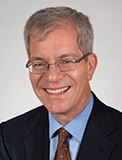The Foreign Service at 90: Future-Oriented, with Traditional Strengths
President's Views
BY ROBERT J. SILVERMAN

The Foreign Service and AFSA have grown to record numbers to support the complex organizational needs of our country’s foreign policy. I will highlight our new challenges and changing culture in coming issues. This month, however, as we begin celebrating the 90th anniversary of both institutions, I would like to celebrate a past Foreign Service great, George Kennan, whose career still holds relevance for all of us.
Please add to your New Year’s resolutions: “Read John Gaddis’ George F. Kennan: An American Life.” Kennan came up in a very different Foreign Service (popularized by the book A Pretty Good Club) than today’s, and he seems to have shared many of the prejudices of his day. But the Kennan of Gaddis’ book transcends his times, beginning with the beauty and sanity of his writing.
Gaddis preserves several of Kennan’s poems; here is the 22-year-old describing his A-100 class in 1926:
The steady flow of words
Rises and falls with dull vacuity…
We sprawl in stolid patience on our chairs…
Read papers, surreptitiously…
We are a joint, slumbering animal,
And if you prod one part,
With a question,
It twitches, verbally,
Then it falls asleep again.
Sound like he was sitting in the back of your class?
The most interesting part of the biography for me was the 20 years of Foreign Service that preceded Kennan’s 1946 Long Telegram on “The Sources of Soviet Conduct.” Early on, he chose to study Russian and serve in our Soviet listening posts in the Baltics, then got himself on the team sent to open Embassy Moscow in 1933. The adventure of young married life in a Soviet hotel, setting up a chancery and making initial contacts with Soviet officialdom will be instantly familiar to many of us who opened embassies in the former Soviet Union in 1992.
During Kennan’s second tour in Moscow during World War II, Ambassador Averell Harriman edited out his anti-Soviet warnings. Once Harriman departed post in 1946, Kennan was free to pen the Long Telegram, which serendipitously hit Washington just as postwar concerns with Soviet behavior were surfacing. That cable and his later memos as policy planning chief defined U.S. strategy in the early Cold War.
Yet Foreign Service fame was transitory. As ambassador to Moscow in 1952, he was declared persona non grata for publicly comparing the Stalin regime unfavorably with the Nazis. He returned to State to await reassignment (colloquially known as walking the halls), then was asked to resign by incoming Secretary John Foster Dulles. As Kennan wrote his wife, Annalise: “There has been a decision that I am not to be consulted or used in any way in this country, but am to be ‘sent away’ as a sort of punishment for my association with the Truman administration.”
Kennan, of course, did not fade away in retirement. Relying as always on the bedrock of a lifelong partnership with Annalise, he remained influential over the next 50 years as a historian and public intellectual.
Here is my takeaway from Gaddis’ book: The architect of our winning strategy in the Cold War developed that strategy after 20 years of language study and Foreign Service tours focused on understanding the other side. Our country will continue to need that type of expertise to meet current and future challenges.
Let me close with another example of Kennan’s fine pen, the first stanza of his last memo to the Policy Planning staff.
Friends, teachers, pupils; toilers at the wheels;
Undaunted drones of the official hive,
In deep frustration doomed to strive,
To power and to action uncommitted,
Condemned (disconsolate, in world of steel and glass confined)
To course the foggy bottom of the mind,
Unaided, unencouraged, to pursue,
The rarer bloom, the deeper hue,
The choicer fragrance—these to glean
And, having gleaned, to synthesize
And long in deepest reticence to hide…
Until some distant day—perhaps—permitted,
Anonymous and unidentified
The Great White Queen
at last
to fertilize.
Read Gaddis. And throughout 2014, be well, stay safe and keep in touch,

